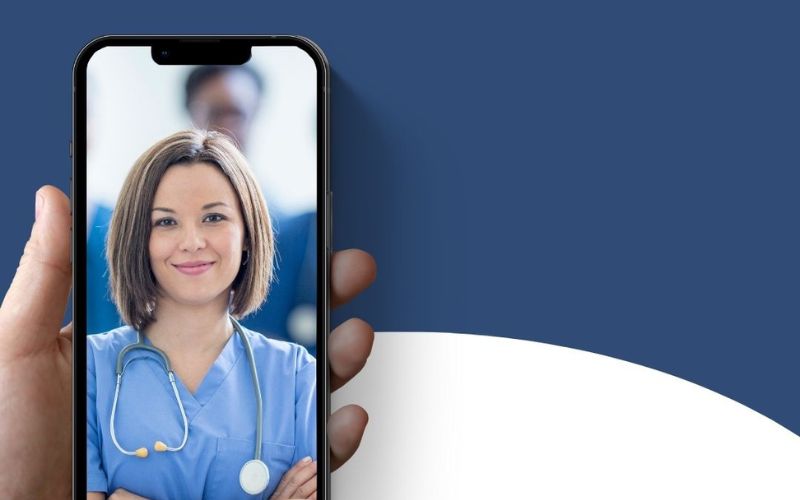Generative AI to tackle problems in child medical care delivery in resource-poor countries
Mass General Brigham paediatric clinicians created 45 videos on paediatric care topics to tackle problems plaguing child medical care delivery in resource-poor countries that increase the risk of poor outcomes and mortality

Image: Canva
A team of paediatric clinicians at Mass General Brigham have turned to generative artificial intelligence (AI) to tackle problems plaguing child medical care delivery in resource-poor countries that increase risk for poor outcomes and mortality.
The clinicians developed a series of 45 multilingual videos, each ranging from three to eight minutes long, designed to educate providers around the world on paediatric care topics touching on teamwork, how to improve interpersonal communication, 'how I do it' surgical procedures, as well as focused guidance in delivering anaesthesia, intensive care unit care, ward nursing and transitions from hospital to home. The videos were recorded in English and then translated to Spanish, emphasising Latin American variations, using OpenAI's generative AI large language model, GPT-4. The videos were then enriched with synthetic voice avatars of native speakers. The videos were designed to be viewed on smartphones, which are more accessible than laptops in some healthcare settings. The clinicians described their experiences and videos in a paper published on February 22 in Frontiers in Public Health.
According to senior study author doctor of medicine Christopher Hartnick, the impetus for creating these videos was inspired by his experiences with a foundation he co-founded called CareWays Collaborative, a nonprofit global health mission organisation affiliated with Mass Eye and Ear and Massachusetts General Hospital, members of Mass General Brigham. Hartnick, who is director of the Paediatric Otolaryngology Division at Mass Eye and Ear, helped start the collaboration with study fellow senior author doctor of medicine, Phoebe Yager chief of the Division of Paediatric Critical Care Medicine at Mass General for Children, following his work with another global health nonprofit he oversees focusing on airway surgeries, Operation Airway. One tragic memory that stuck with him was when he was in El Salvador performing airway surgeries. He noticed an infant who was not a patient of his laying in the ward, without sedation, who had been intubated with a poorly-taped breathing tube that was the size of what a 14-year-old would need. He learned that the child died the next day.
"What became clear as I took a step back was that a lot of children in these countries were getting sick and dying from things like sepsis and trauma and would wind up in intensive care units (ICUs) needing the type of collaborative care that we taught with airway surgery," said Hartnick, who is also a professor of otolaryngology, head and neck surgery, at Harvard Medical School. "We asked how often these errors occur and what we could do to help. It was evident that we needed to help teach a culture of care and to understand the existing clinical knowledge gaps better so we could best address them head-on," he added.
During two mission trips to Guatemala and Colombia, the authors conducted needs assessments with the medical staff to guide the questions needed for the educational videos. Using these insights, paediatric clinicians created concise narrated videos recorded at Mass General Brigham sites to encapsulate key aspects of paediatric care, providing teachings on surgical procedures, perioperative care, patient journeys and directing to educational resources with best-practice guidelines for patients and caregivers.
Hartnick then turned to a member of his lab who designs innovative otolaryngology tools, doctor of philosophy, Fouzi Benboujja, and also enlisted his daughter, Elizabeth Hartnick, an applied maths major at Brown University, to manage the technical aspects of using GPT4 and video software to translate these videos and develop synthetic voice profiles to match authentic local speech.
Each video gets organised into sub-specialty-specific chapters within the Canvas educational platform, and the researchers hope this categorisation can help providers search easily for information most pertinent to them. For example, there are 19 instructional videos for paediatric intensivists, including video instruction on 'how to tape and secure an endotracheal tube,' 'how to dress, access and care for a central venous catheter,' and 'how to prevent ventilator-related pneumonias.'
Thus far, the videos have been distributed in Guatemala, including to a group of 150 nurses, and Colombia, garnering positive feedback. The researchers plan to track patient outcomes for complications and mortality in hospitals and determine whether these videos might have a positive result. They also plan to translate the videos into other languages.
"It is so exciting to harness the power of AI to translate this video-based curriculum into multiple languages in such an efficient manner. This ability to broaden the reach of our curriculum centred around multidisciplinary care captures our longstanding mission to foster inclusivity and communication in global health," said Yager.
With further refining of large-language models, such tools have the potential to disrupt how medical education is provided, according to Hartnick.
"Global health has been constrained by language issues across the world. Once you translate the needs of providers in other countries, you need to respond to their needs. Generative AI provides a way to translate into a format they can understand and process in their work," he said.